TENOVIN-1
- CAS NO.:380315-80-0
- Empirical Formula: C20H23N3O2S
- Molecular Weight: 369.48
- MDL number: MFCD02914760
- EINECS: 200-256-5
- SAFETY DATA SHEET (SDS)
- Update Date: 2024-11-19 20:33:22
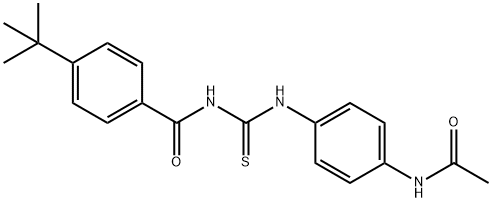
What is TENOVIN-1?
Description
Tenovin-
The Uses of TENOVIN-1
Tenovin 1 is a sirtuin inhibitor.
What are the applications of Application
Tenovin-1 is an inhibitor of SIRT1 and SIRT2
Definition
ChEBI: N-[(4-acetamidoanilino)-sulfanylidenemethyl]-4-tert-butylbenzamide is a member of thioureas.
Biological Activity
p53 activator that protects against MDM2-mediated p53 degradation. Elevates levels of p53 and p21 CIP/WAF1 and induces expression from an endogenous p53-dependent promoter. Exhibits potent antiproliferative activity in vitro .
References
Lain et al. (2008), Discovery, in vivo activity, and mechanism of action of a small-molecule p53 activator; Cancer Cell, 13 454 Sonnemann et al. (2014), p53-dependent and p53-independent anticancer effects of different histone deacetylase inhibitors; Br. J. Cancer 110 656 Nihal et al. (2014), SIRT1 is upregulated in cutaneous T-cell lymphoma, and its inhibition induces growth arrest and apoptosis; Cell Cycle 13 632 Wilking et al. (2014), SIRT1 deacetylase is overexpressed in human melanoma and its small molecule inhibition imparts anti-proliferative response via p53 activation; Arch. Biochem. Biophys. 563 94 Marx et al. (2018), The sirtuin 1/2 inhibitor tenovin-1 induces a nonlinear apoptosis-inducing factor-dependent cell death in a p53 null Ewing’s sarcoma cell line; New Drugs 36 396 Bang et al. (2019), Tenovin-1 Induces Senescence and Decreases Wound-Healing Activity in Cultured Rat Primary Astrocytes; Biomol. Ther. (Seoul) 27 283
Properties of TENOVIN-1
| Melting point: | >180°C (Subl.) |
| Density | 1.238±0.06 g/cm3(Predicted) |
| storage temp. | Sealed in dry,Room Temperature |
| solubility | Soluble in DMSO (10 mg/ml with warming) |
| form | solid |
| pka | 9.09±0.70(Predicted) |
| color | White |
| Stability: | Stable for 2 years from date of purchase as supplied. Solutions in DMSO may be stored at -20°C for up to 3 months. |
Safety information for TENOVIN-1
Computed Descriptors for TENOVIN-1
New Products
4-Fluorophenylacetic acid 4-Methylphenylacetic acid N-Boc-D-alaninol N-BOC-D/L-ALANINOL Tert-butyl bis(2-chloroethyl)carbamate 3-Morpholino-1-(4-nitrophenyl)-5,6-dihydropyridin- 2(1H)-one Furan-2,5-Dicarboxylic Acid Tropic acid S-2-CHLORO PROPIONIC ACID ETHYL ISOCYANOACETATE 2-Bromo-1,3-Bis(Dimethylamino)Trimethinium Hexafluorophosphate (6-METHYL-[1,3]DITHIOLO[4,5-b]QUINOXALIN-2-ONE INDAZOLE-3-CARBOXYLIC ACID 4-IODO BENZOIC ACID (2-Hydroxyphenyl)acetonitrile 4-Bromopyrazole 5,6-Dimethoxyindanone 2-(Cyanocyclohexyl)acetic acid 4-methoxy-3,5-dinitropyridine 2-aminopropyl benzoate hydrochloride 1-(4-(aminomethyl)benzyl)urea hydrochloride diethyl 2-(2-((tertbutoxycarbonyl)amino) ethyl)malonate tert-butyl 4- (ureidomethyl)benzylcarbamate Ethyl-2-chloro((4-methoxyphenyl)hydrazono)acetateRelated products of tetrahydrofuran
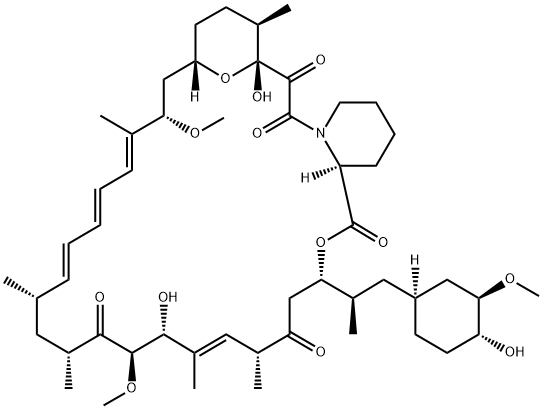
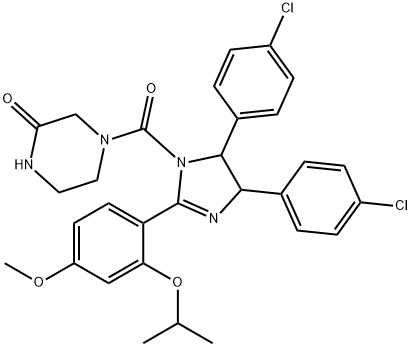
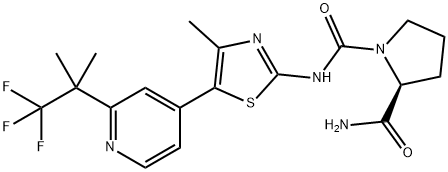
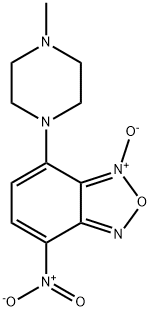
![N-[2-(1H-Indol-3-yl)ethyl]-N'-(4-pyridinyl)-1,4-benzenediamine](https://img.chemicalbook.in/CAS2/GIF/881202-45-5.gif)
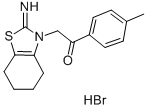
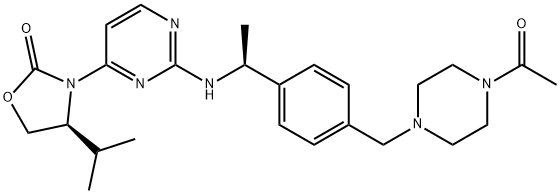
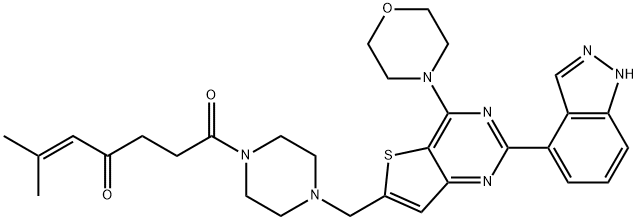
You may like
-
 Tenovin-1 >95% CAS 380315-80-0View Details
Tenovin-1 >95% CAS 380315-80-0View Details
380315-80-0 -
 Tenovin-1 95% CAS 380315-80-0View Details
Tenovin-1 95% CAS 380315-80-0View Details
380315-80-0 -
 1975-50-4 98%View Details
1975-50-4 98%View Details
1975-50-4 -
 2-HYDROXY BENZYL ALCOHOL 98%View Details
2-HYDROXY BENZYL ALCOHOL 98%View Details
90-01-7 -
 2-Chloro-1,3-Bis(Dimethylamino)Trimethinium Hexafluorophosphate 221615-75-4 98%View Details
2-Chloro-1,3-Bis(Dimethylamino)Trimethinium Hexafluorophosphate 221615-75-4 98%View Details
221615-75-4 -
 61397-56-6 CIS BROMO BENZOATE 98%View Details
61397-56-6 CIS BROMO BENZOATE 98%View Details
61397-56-6 -
 14714-50-2 (2-Hydroxyphenyl)acetonitrile 98+View Details
14714-50-2 (2-Hydroxyphenyl)acetonitrile 98+View Details
14714-50-2 -
 118753-70-1 98+View Details
118753-70-1 98+View Details
118753-70-1